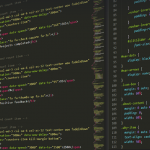Don’t Panic, There’s a Solution for Every Reader
So you’ve been tasked with writing a book report and you are feeling overwhelmed? You’re not alone. Many students struggle with this assignment, but don’t worry! There’s a simple solution: free book reports!
A book report, at its core, is about understanding the author’s message and sharing your own perspective on what you read. It can be a challenging task for sure, but by utilizing free resources, you can ensure a smooth and stress-free experience.
The beauty of using free resources lies in their accessibility. They offer valuable support and guidance to create a comprehensive and engaging book report without breaking the bank.
But where do you find these treasure troves of information? Let’s delve into some specific examples that can be your saving grace:
- CliffsNotes: This website offers detailed summaries, character analyses, and even discussion questions for countless literary works—all available for free.
- BookRags: Another fantastic resource for book reports! Their “Study Guides” section provides in-depth analysis of themes, symbols, and major plot points.
- Literary Devices: This website dives into the world of literary language, offering resources to analyze a story’s structure, tone, imagery, and figurative language.
- SparkNotes: Think of SparkNotes as your friendly neighborhood guide for reading comprehension. Their summaries and annotations help you grasp the core themes and messages of any novel you tackle.
Now, let’s explore some specific free book report templates that can provide a solid foundation for your assignment:
Free Book Report Templates: Your Blueprint for Success
Free book reports are available online in various formats. Let’s talk about their structure and what to include:
Template Basics
A good free book report template should be easy to follow and adaptable to your specific needs. Here’s a basic outline you can start with.
- Title page: Include the title of your book, your name, and the date
- Introduction: Introduce your book—mention its genre, author, and a brief overview. Briefly explain why you chose to read it in the first place!
- Setting and Plot Summary: Dive into the story’s setting—describe its mood, atmosphere, and how the characters interact with it. Summarize the plot in a concise paragraph, highlighting key events that shaped your understanding of the book.
- Characters Analysis: Explore each character’s motivations, flaws, strengths, and relationships with others in the story. Explain how they change throughout the novel.
- Themes and Motifs: Identify the central themes of the book—what are some of the big ideas explored by the author? How do different characters embody these themes?
- Literary Devices: If applicable, highlight specific literary devices like metaphors, similes, symbolism, or foreshadowing. Explain how these devices add depth to the story and impact your reading experience.
- Conclusion: Summarize what you found most noteworthy in the book, offering your personal insights on its meaning, relevance, and lasting impression.
Don’t be afraid to get creative!
Remember, free book reports are not about simply copying and pasting. Use these templates as a starting point for your creativity. Explore different approaches and find what works best for you. Don’t hesitate to personalize them with your own ideas.
The key is to analyze the author’s message, connect it to your personal experiences, and express yourself creatively.
Free book reports offer an excellent way to learn about different genres, authors, and literary techniques, allowing you to discover new passions for reading and writing!
So, grab a pen and paper, dive into some captivating tales, and let the creativity flow.
Don’t underestimate the power of free resources. They can make all the difference in crafting your own unique and insightful book report!











